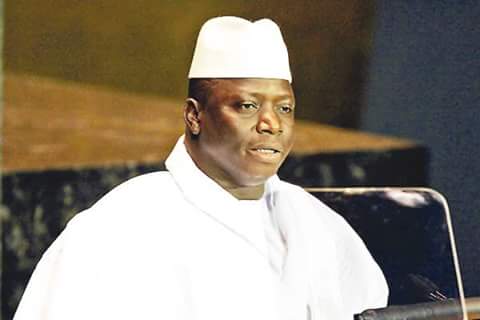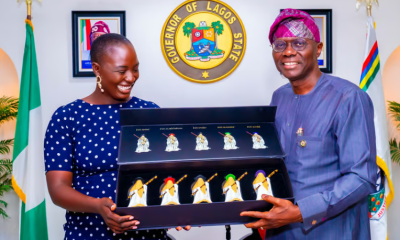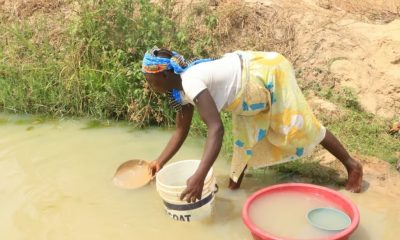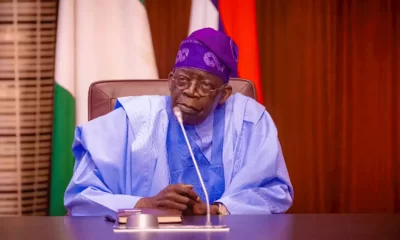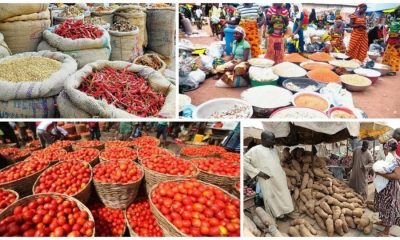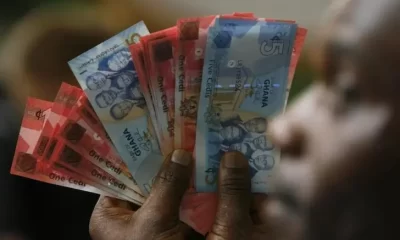- As Buhari, Mahama, Sirleaf, Koroma others head for The Gambia
- President-elect to welcome delegation
President Muhammadu Buhari is visiting The Gambia today. But this is no ceremonial trip. Buhari along with three other West African leaders will be in Banjul, the capital, to tell President Yahya Jammeh to “leave office” following his defeat in the December 1 general election.
A source said an advance team had left Abuja for Banjul.
With Buhari on the trip are Economic Community of West African States (ECOWAS) chair and Liberian leader Ellen Johnson Sirleaf, Sierra Leone leader Ernest Bai Koroma and outgoing Ghanaian President John Dramani Mahama.
“These leaders will ask him to leave office,” a source said.
Senegalese Foreign Minister Mankeur Ndiaye said an ECOWAS delegation was due in Banjul last week but Jammeh did not allow them to visit.
In a U-turn at the weekend, the temperamental Jammeh, who has ruled The Gambia with an iron fist for 22 years, rejected his stunning electoral defeat to opposition candidate Adama Barrow.
Barrow is due to welcome the ECOWAS delegation, which will also include United Nations (UN) representatives, which the president-elect said gave him hope that he would soon take power.
Mrs Sirleaf said at the weekend that the reversal of Jammeh’s decision “threatened peace”.
She asked him to “do the right thing and take actions to facilitate a smooth and peaceful transition in The Gambia.”
Barrow is quoted by French news agency (AFP) as saying: It’s giving us confidence and it will give confidence to every Gambian that the world is concerned about Gambia.”
Barrow rejected Jammeh’s decision to challenge the result in the Supreme Court, saying:
“We don’t have time to fight again. The Supreme Court wasn’t existing in the last one year. There are a pile of cases that are waiting… but he doesn’t care about it.
“I think he should step down now. He has lost the election, we don’t want to waste time, we want this country to start moving.”
The coalition led by Barrow also called on Jammeh to step down immediately and hand over power.
The coalition said in the statement that the president had no constitutional authority in his final days in office to name new Supreme Court judges to hear his petition.
The visiting leader will also meet with Barrow, it was learnt.
According to the electoral commission Barrow won 222,708 votes (43.3%) to Jammeh’s 208,487 (39.6%). A third-party candidate, Mama Kandeh, won 89,768 (17.1%).
Mrs Sirleaf said The Gambia could be plunged into violence by the president’s decision to reject election results in which he was defeated.
ECOWAS head Marcel Alain de Souza said President Yahya Jammeh must respect The Gambian people’s choice, describing his U-turn as shameful.
Jammeh, who conceded victory to property developer Barrow immediately after the election, changed his mind on Saturday. He alleged that the poll was marred by irregularities and demanded a new vote organised by a “God-fearing” electoral commission.
Jammeh changed his position when The Gambian Electoral Commission readjusted the final figures of the Presidential Election.
The Islamic Republic of The Gambia, is a country in West Africa mostly surrounded by Senegal with a short strip of its coastline bordered on the Atlantic Ocean at its western end. It is the smallest country in mainland Africa.
The Gambia is situated on either side of the Gambia River, the nation’s namesake, which flows through the centre of the Gambia and empties into the Atlantic Ocean. Its area is 10,689 square kilometres (4,127 sq mi) with a population of 1,882,450 at the 15 April 2013 census (provisional). Banjul is the Gambian capital, and the largest cities are Serekunda and Brikama.
The Gambia shares historical roots with many other West African nations in the slave trade, which was the key factor in the placing and keeping of a colony on the Gambia River, first by the Portuguese, during which era it was known as A Gâmbia.
On 18 February 1965, The Gambia gained independence from the United Kingdom. Since then, the Gambia has had two leaders: Dawda Jawara, who ruled from 1970 until 1994, and Jammeh, who seized power in a coup that year as a young army officer.
The Gambia’s economy is dominated by farming, fishing, and especially tourism. About a third of the population lives below the international poverty line of US$1.25 per day.

 Football2 days ago
Football2 days ago
 Business1 week ago
Business1 week ago
 Business1 week ago
Business1 week ago
 Education1 week ago
Education1 week ago
 Crime1 week ago
Crime1 week ago
 Covid-191 week ago
Covid-191 week ago
 Business1 week ago
Business1 week ago
 Latest5 days ago
Latest5 days ago
